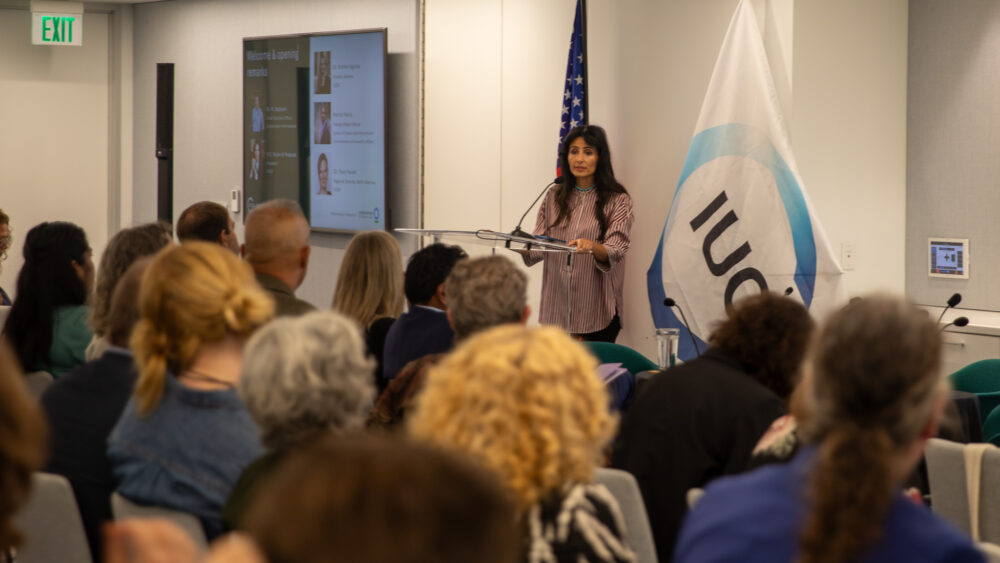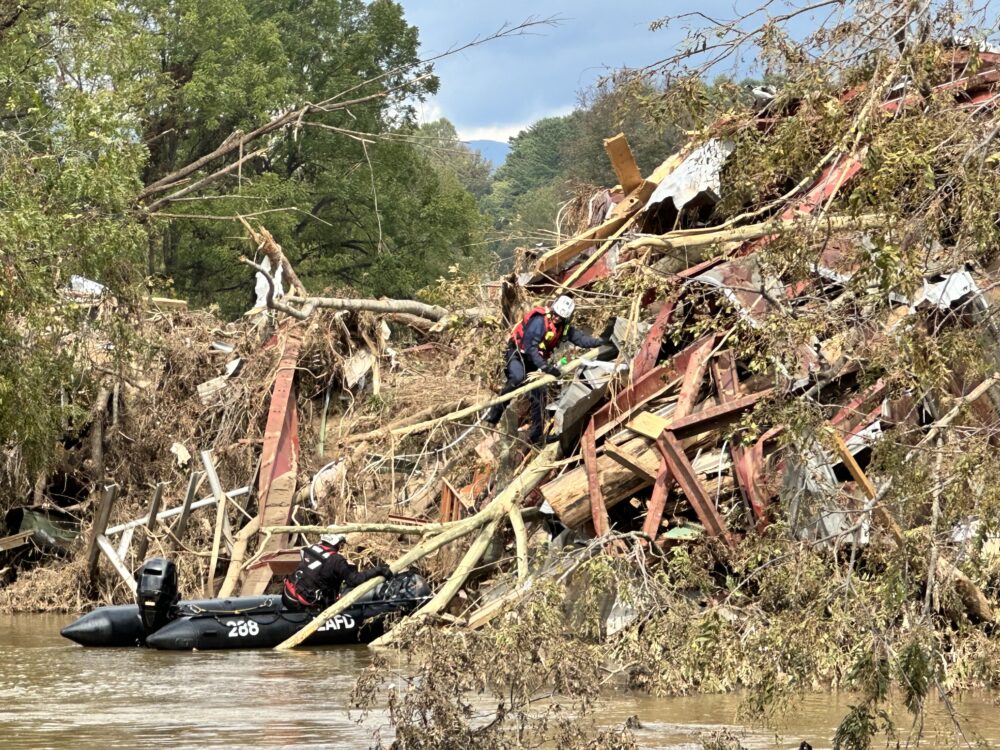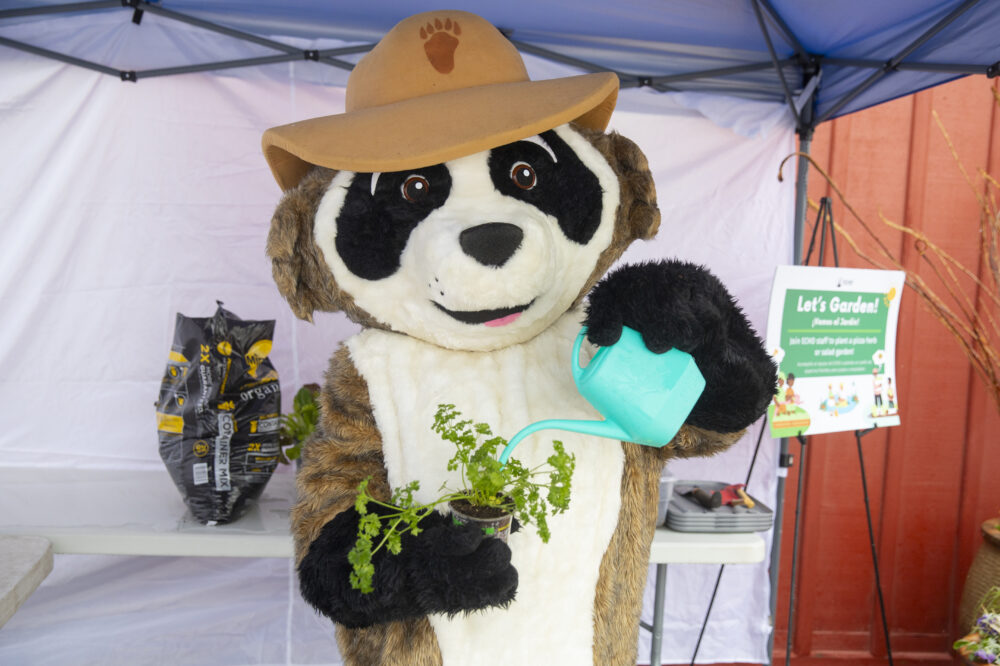We have much more to do and your continued support is needed now more than ever.
Academics Afield: Arming Students with Safe Hunting Practices
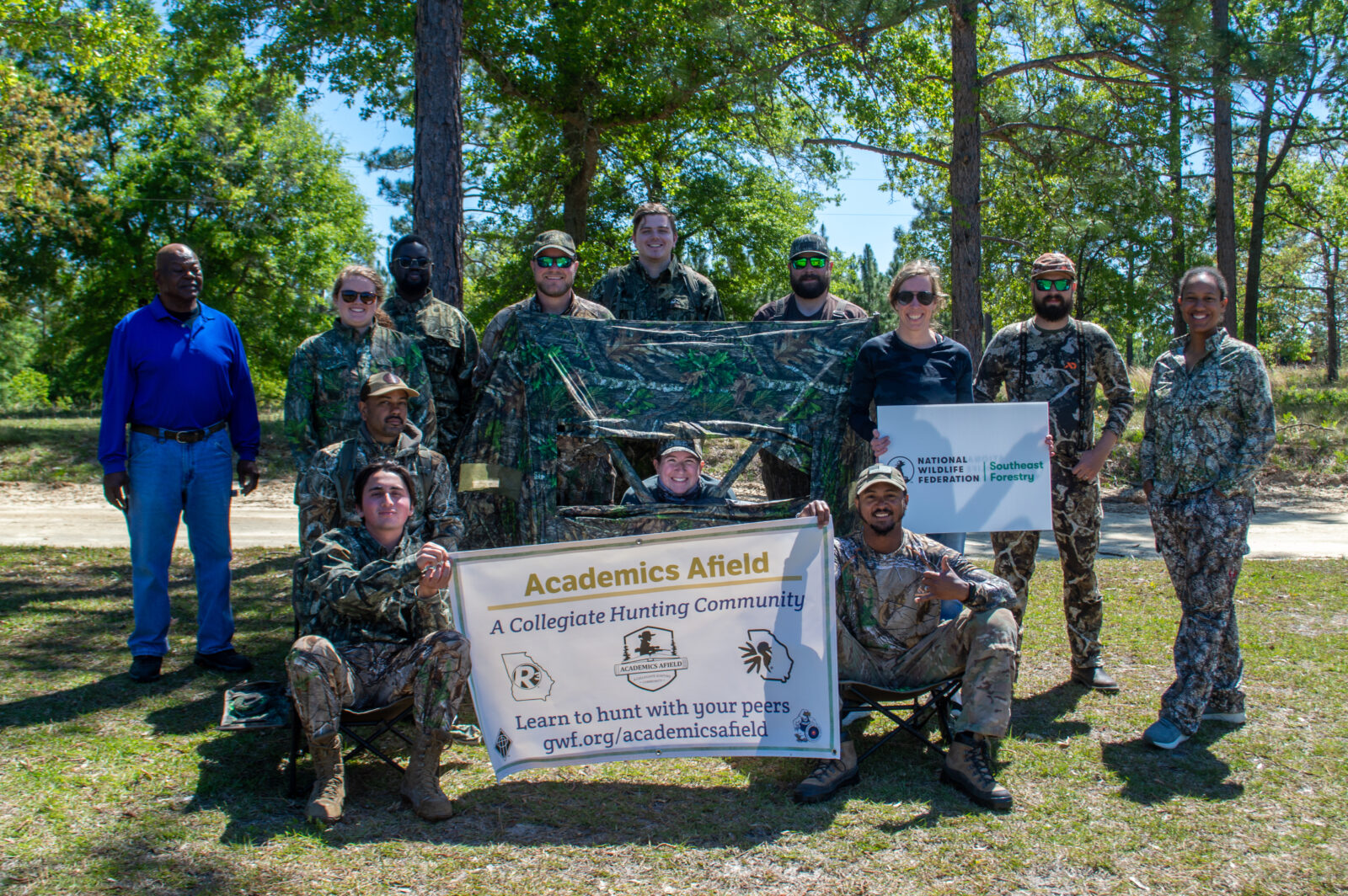
Hunting is integral in wildlife conservation—from connecting people with nature to managing animal populations—and since 1936, the National Wildlife Federation (NWF) has been a driving force that supports hunting and fishing legislation and conservation. It’s this facet of NWF’s work that inspired the Southeast Forestry program to partner with its affiliate, Georgia Wildlife Federation (GWF), to bring their championed Academics Afield program to Swainsboro, Georgia in connection to the Longleaf for All Landowner Mentorship Model.
Founded by GWF in 2019, Academics Afield is a learn-to-hunt collegiate program that builds off current Recruitment, Retention, and Reactivation (R3) programming. By removing participation barriers, the program introduces college students from nontraditional backgrounds to hunting and shooting sports. All participating students have little to no sporting experience and/or a support network to help them get started or learn and maintain skills.
To help teach the incoming students, GWF recruited mentors from the National Wild Turkey Federation, Georgia Department of Natural Resources, and Georgia Forestry Commission (GFC), whose specialties included firearm safety, wild turkey hunting practices, and longleaf pine restoration.
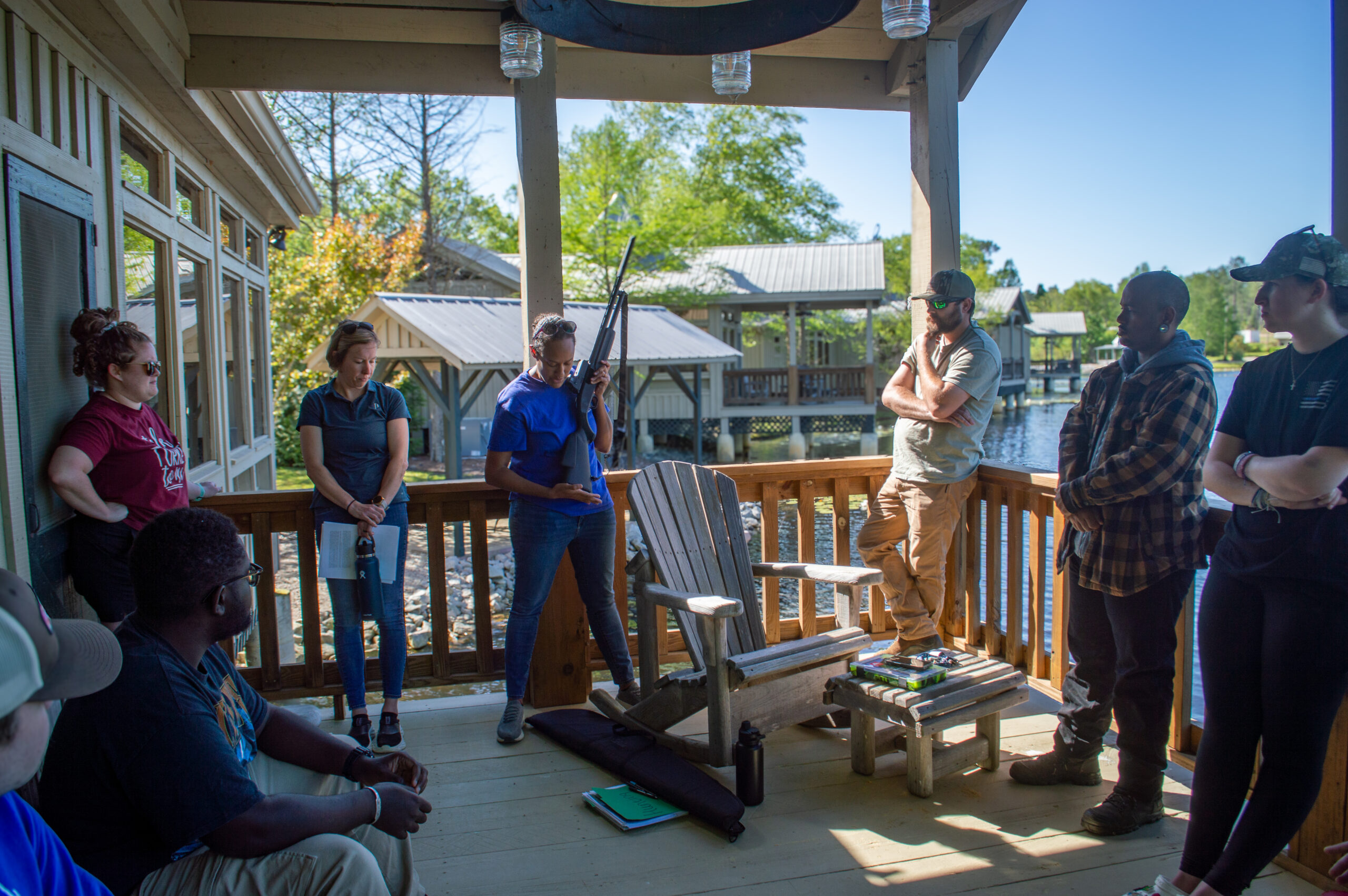
Getting Students in the Field
Before heading to the practice range, Coral Minchey, Academics Afield Facilitator at GWF, refreshed participants on the basic universal firearm safety rules: treat all guns as loaded, always keep firearms pointed in a safe direction, keep your finger off the trigger until you’re ready to shoot, and be sure of your target and what’s behind it.
While every student had fired a gun before, many hadn’t fired a shotgun. So, mentors had the students practice firing with bipods first. Then they transitioned into firing freehanded from blind chairs. This helped students get comfortable with the punch shotguns pack (which can be quite hefty) prior to the hunt.
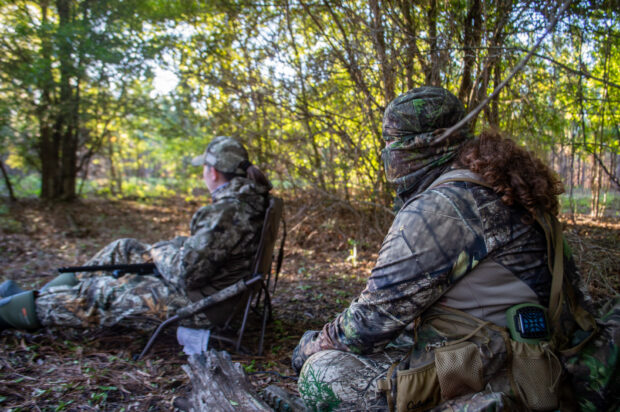
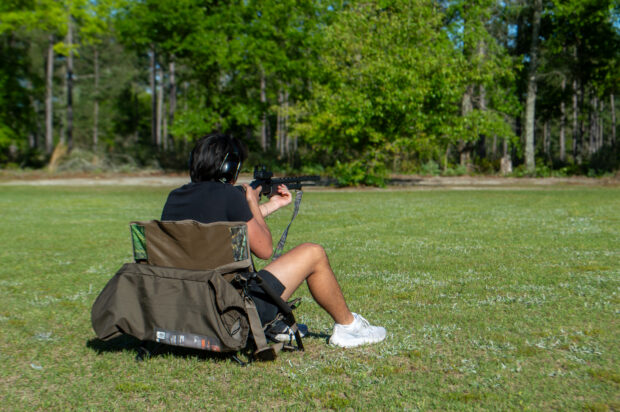
Later, the group learned about the Willie Hodges Estate Family Farm, where their hunt would unfold.
Overseen by Herbert Hodges, Longleaf for All’s Landowner Mentor, the Willie Hodges Estate Family Farm serves as a demonstration site for longleaf pine conservation and restoration for the Southeast Forestry program and its affiliates. It’s these restoration efforts that set the stage for the hunt ahead. A hunt that started before the sun rose.
As the young hunters traversed the woods for wild turkey, birds like chuck-will’s-widow, tufted titmouse, white-eyed vireo, pine warbler, and eastern towhee sang above. One group set up in the bushes, relying on turkey calls and decoys to lure gobblers. Another stalked the woods, following clucks and purrs until they located chicks (which they couldn’t shoot per Georgia’s turkey hunting regulations, but could appreciate nonetheless).
“I learned a lot of valuable information in terms of how to call correctly for turkeys [and] how to track them,” said Milo Raoof, a graduate student at Fort Valley State University. “We got close but didn’t quite get anything. But we got to see some deer, beautiful property, [and] got to hear the story from Mr. Hodges about what his family has invested in on his property.”
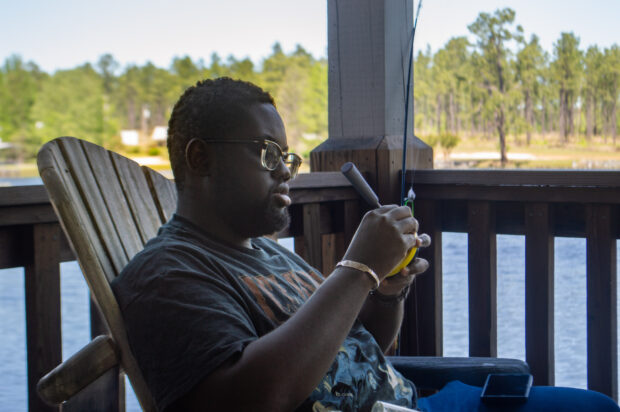

Investing in Future Generations
After patrolling the woods, students learned about prescribed burning on Mr. Hodges’ property from Andy Taylor, GFC, and Tiffany Woods, NWF. This helped them understand the methods that help the longleaf pine ecosystem thrive and ensure longleaf forests are accessible for generations to come.
While nobody left with a turkey in hand, the students emerged excited to share the plethora of knowledge they learned with their friends, family, and in one instance, their future students.
“I’m going to be a high school teacher teaching these kids biology and this weekend is allowing me to bring this back to my youth [and] back to my family,” said Nathan Huston, a junior at Georgia Southern University. “I’ve never experienced anything like this, and I doubt that I would’ve ever been able to . . . without this program. It is allowing me to . . . bring new sights into my community as well as bringing it into my family and hopefully my kids.”
To learn more about the Academics Afield program, contact Coral Minchey: cminchey@gwf.org or (912) 507-3086.


